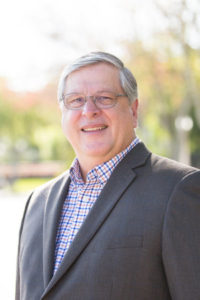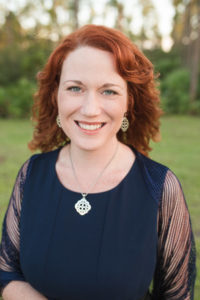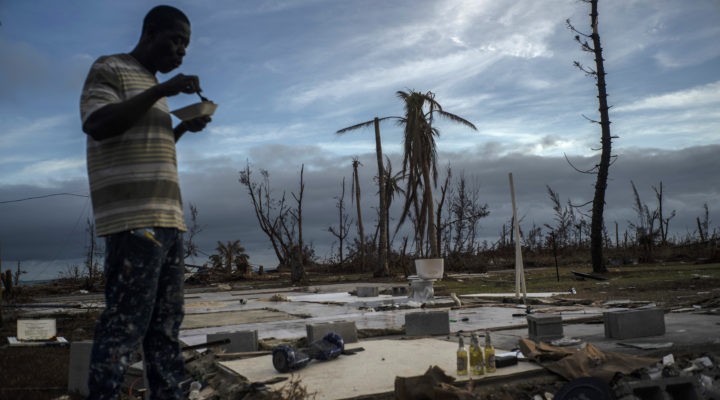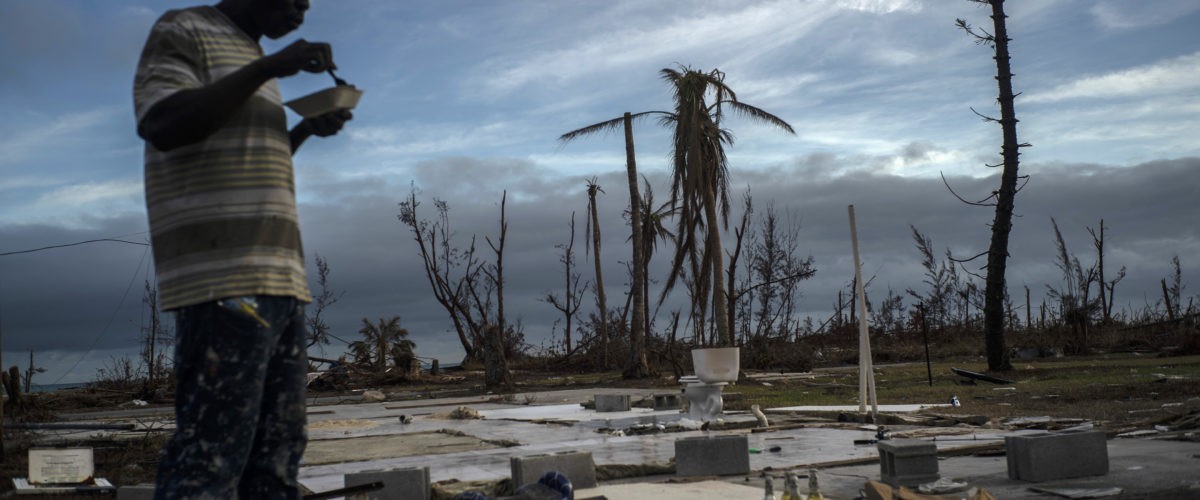A religious group’s call for disaster response volunteers in the Bahamas paints an all-too-real image of the desperate conditions in the hurricane-ravaged nation.
Volunteers heading to Abaco and Grand Bahama islands have to be “healthy, mature and adequately skilled” in clean up, home restoration and roof repair, Cooperative Baptist disaster response leaders announced in a recent blog post.

Ray Johnson
Hurricane Dorian ravaged the islands so badly in September that 70,000 people were left homeless. Hundreds died. It also obliterated infrastructure so thoroughly in some areas that relief volunteers will be working in abysmal conditions.
“There is no electricity at all,” said Ray Johnson, coordinator of CBF Florida, which is managing the response.
“Sanitation is also a concern and remains a problem,” he said. “Conditions are going to be pretty primitive on the work sites.”
Because emotional and spiritual conditions aren’t any better, the Fellowship also is training local pastors, lay people, shelter workers and others in how to provide spiritual care in their communities, said Rachel Gunter Shapard, associate coordinator of CBF Florida.
Thousands have lost homes, jobs and loved ones, she said, and suicide rates are reportedly climbing.

Rachel Gunter Shapard
Spiritual care experts have been sent to conduct training in the practice which does not require a chaplain or pastor.
“We have sensed for some time that disaster response requires a very specific need around spiritual care,” she said. “It’s not just your average pastoral care.”
CBF Florida hired native Bahamian Teruco Tynes to coordinate the spiritual care effort in the the Bahamas going forward. She recently toured the devastated nation.
“Every aspect of life has been altered,” she said in CBF Florida’s newsletter. “In addition to the tremendous loss of physical structures are the heavy tolls on family life.”
Moving into the reconstruction phase, meanwhile, has been difficult and slow, Johnson said.
“It was a monumental task.”
Soon after Dorian hit, CBF Florida hired a company that usually transports people to deliver supplies to the islands.
“The fastest way initially” wasn’t so fast, Johnson explained. “We had a shipment sit in cargo holds for a couple weeks because the company was overwhelmed.”
Another shipping company was tapped for the task and has been able to provide relatively quicker delivery times for the plywood, roofing materials and other supplies needed there.
But there are hiccups. Johnson said a volunteer team arrived in the islands on Monday only to find the shipment they needed wasn’t there. It’s not surprising given the high demand for cargo-moving vessels.
“Those things happen,” he said, adding that disaster response coordinators are learning as they go.
“To remedy that, we are working to piece together two large orders to be pre-positioned for future teams.”
Disaster response officials with CBF Florida and CBF Global are currently in the Bahamas to inspect work sites.
That collaboration mirrors the financial side of the effort, too.
CBF Florida received generation contributions for Bahamas relief and has spent $50,000 so far on shipments to the nation. CBF Global and state and regional organizations across the Fellowship also are pitching in, Johnson said.
The efforts also will be led by members of CBF Bahamas, including its coordinator, John McIntosh, a local pastor.
Dorian’s impact on the Bahamas marks “the most consuming” disaster response during Johnson’s 13-year tenure with CBF Florida.
It also is one of the most personal because so many CBF congregations, pastors and individuals were impacted, he said.
“The scale of what we are dealing with in the Bahamas is much different, and that’s also in terms of relationships,” Johnson said.
The effort to find teams is proceeding slowly.
As of Tuesday, several have inquired about volunteering and one person has registered, Rick Burnette, CBF’s disaster response manager, said by email.
“I expect we’ll have sustained engagement but not at the level of recent involvement” in Florida, North Carolina and Puerto Rico “due to the expense and more challenging conditions,” Burnette said.


